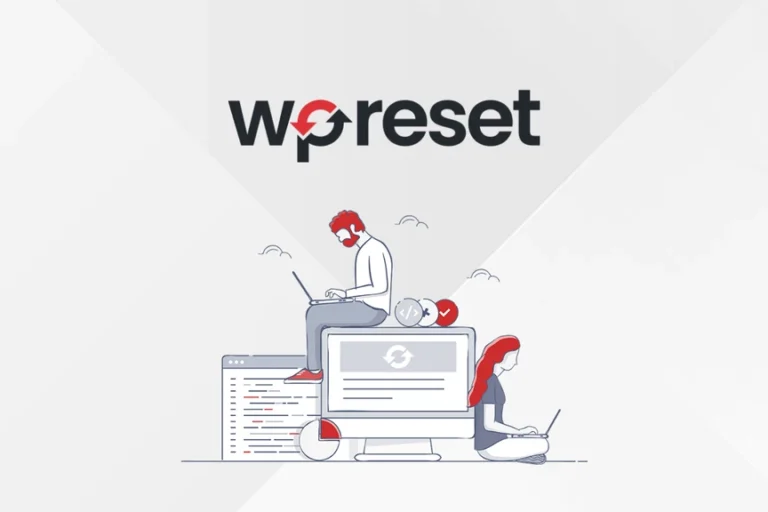How to Choose the Best Website Builder for Your Business
Choosing the right website builder is a crucial step for any business looking to establish an online presence. With countless options available, understanding what to consider can make the decision-making process easier and more effective. In this blog, we’ll explore essential questions to help guide you in selecting the best website builder for your business needs.
1. What Type of Business Do You Have?
The first question to consider is the type of business you operate. Are you running an e-commerce store, a portfolio, a blog, or a corporate site? Each type of business has unique requirements, so identifying your business model will help narrow down the features and capabilities you need from a website builder.
2. What Are Your Primary Goals for the Website?
What do you want to achieve with your website? Are you aiming for increased sales, lead generation, or enhanced brand awareness? Defining your primary goals will guide your selection process and ensure that the builder you choose aligns with your objectives.
3. Who Is Your Target Audience?
Understanding your target audience is vital. Who are they, and what do they need from your website? Knowing your audience will help you select a website builder that offers suitable design options and features that resonate with your visitors.
4. Do You Need a Single Page or Multi-Page Website?
Depending on your content and business needs, you might require a single-page website or a multi-page one. A simple landing page may suffice for small businesses or promotions, while larger enterprises often benefit from multiple pages that detail their services and offerings.
5. What Content Do You Plan to Include?
Consider the type of content you want to showcase on your website. Will it primarily be text, images, videos, or a combination? Your content strategy will influence your choice of website builder, as some platforms are better suited for certain types of media.
6. How Important Is Ease of Use?
When evaluating website builders, consider how user-friendly they are. Do you or your team have technical expertise, or do you prefer a platform that requires minimal coding knowledge? Ease of use is essential for efficient website management, especially if you plan to update content frequently.
7. What Level of Technical Expertise Do You Have?
Your technical skill level will greatly affect your choice of website builder. If you are a beginner, look for a platform with a drag-and-drop interface. For those with coding knowledge, a builder that offers customization options through code might be more appealing.
8. What Mobile Optimization Features Are Essential?
In today’s digital landscape, mobile optimization is crucial. Does the website builder ensure your site is responsive and mobile-friendly? Verify that the templates and designs are optimized for various devices to provide a seamless experience for all users.
9. What Specific Features Do You Need?
List the features that are essential for your business. Do you need blogging tools, SEO capabilities, e-commerce functionality, or custom forms? Make sure the website builder you choose can accommodate these features without excessive add-ons.
10. How Important Are Templates and Design Flexibility?
Design is a critical component of your website’s effectiveness. How important is it for you to have a variety of templates to choose from? Also, consider whether you need the ability to customize these templates or if you prefer to select a pre-designed layout.
11. Do You Need Third-Party App Integrations?
If you rely on specific applications, check if the website builder supports integrations with third-party apps. This could include payment processors, CRM systems, and marketing tools, which can streamline your business processes.
12. How Do You Plan to Handle Content Updates and Maintenance?
Think about how often you will need to update your website content. Does the platform make it easy to add, edit, or delete content? A user-friendly content management system will save you time and hassle in the long run.
13. What Customer Support Options Are Available?
Customer support can be a game-changer if you encounter issues with your website. Check the support options available, such as live chat, email, or phone support. Some platforms also offer extensive knowledge bases and tutorials.
14. What Hosting Options Are Included?
Understanding the hosting options provided by the website builder is essential. Does the platform offer reliable hosting with good uptime? Are there limits on storage and bandwidth that might affect your website’s performance?
15. What Are the Security Features?
Security is paramount for any business website. What security features does the builder offer, such as SSL certificates, data encryption, and regular backups? Ensuring your site is secure will help protect your business and your customers.
16. How Does the Website Builder Handle Performance Optimization?
Website performance can impact user experience and SEO rankings. What optimization tools does the website builder offer to improve loading speed? Investigate how the platform handles caching, image optimization, and other performance-enhancing features.
17. What SEO Features Are Built-In?
Search engine optimization (SEO) is vital for driving organic traffic to your website. Does the website builder provide SEO tools, such as meta tags, alt text for images, and URL customization? A solid SEO foundation is crucial for your website’s visibility.
18. How Does the Builder Assist with Analytics and Tracking?
Tracking your website’s performance is essential for making data-driven decisions. Does the builder integrate with analytics tools like Google Analytics? Understanding visitor behavior will help you optimize your site for better results.
19. What Are the Pricing Plans?
Cost is always a consideration. What is your budget for a website builder? Review the pricing plans available and evaluate whether they fit your budget and offer the features you need. Be on the lookout for any hidden fees that might affect your total cost.
20. Are There Any Hidden Fees?
In addition to the monthly or annual fee, are there any hidden costs, such as transaction fees for e-commerce sites or costs for premium features? Understanding the total cost of ownership will help you avoid surprises down the road.
21. What Is the Refund or Trial Policy?
Before committing to a website builder, check if they offer a free trial or a money-back guarantee. This allows you to test the platform and ensure it meets your needs before making a long-term commitment.
22. Will the Website Builder Grow with Your Business?
Consider whether the website builder can accommodate future growth. Will it allow you to upgrade your features or expand your site easily? A scalable solution is important as your business evolves.
23. How Does the Platform Handle Increased Traffic?
If your business experiences a surge in traffic, will the website builder manage it effectively? Understanding how the platform scales with increased traffic will help prevent downtime and performance issues.
24. What Do User Reviews Say About the Website Builder?
Research user reviews and testimonials to gauge the experiences of other businesses with the platform. What do they say about reliability, customer support, and overall satisfaction? This insight can inform your decision.
25. Are There Case Studies or Success Stories?
Look for case studies or success stories that demonstrate how other businesses have benefited from the website builder. This can provide valuable insights into the platform’s effectiveness and potential.
26. How Does Customer Support Rank in User Feedback?
Customer support can significantly impact your experience. What do reviews indicate about the quality of customer support? Look for platforms that consistently receive positive feedback for their support services.
27. What Are the Common Complaints About the Platform?
Understanding common complaints can help you avoid potential pitfalls. Are there recurring issues that users face with the website builder? Identifying these can help you make a more informed choice.
28. Does the Website Builder Comply with Regulations?
If you operate in regions with specific regulations (like GDPR for European customers), ensure that the website builder complies with those laws. How does it handle user data and privacy?
29. What Are the Terms of Service Regarding Content Ownership?
Review the terms of service to understand who owns the content you create. Do you retain ownership, or does the website builder have rights to it? Clarifying this aspect is crucial for your business.
Conclusion
Choosing the right website builder for your business is an important decision that can significantly impact your online success. By asking these questions and thoroughly evaluating your options, you can find a platform that aligns with your goals and meets your needs. Take the time to research and consider each aspect carefully, and you’ll be well on your way to building an effective online presence for your business.







